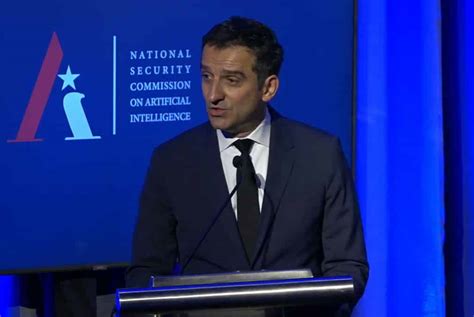In a strategic move to modernize municipal operations, Atlanta has inaugurated its Artificial Intelligence (AI) Commission. This initiative aims to harness AI technologies to enhance city services, improve public safety, and streamline administrative processes, all while ensuring that the workforce remains integral to these advancements.
Atlanta’s AI Initiative
On May 7, 2025, Atlanta’s City Hall hosted the inaugural meeting of the newly established AI Commission. Chaired by Councilmember Amir Farokhi, the commission’s primary objective is to explore the integration of AI into various facets of city governance. The focus areas include:
A. Enhancing public safety measures
B. Optimizing infrastructure maintenance
C. Improving customer service delivery
D. Streamlining administrative procedures
This initiative aligns with Atlanta’s broader vision of becoming a leader in applied AI, leveraging technology to foster efficient and responsive governance.
Composition of the AI Commission
The 13-member commission comprises a diverse group of professionals, including city officials, academic scholars, and technology experts. Notable members are:
A. Jason Sankey – Chief Information Officer, City of Atlanta
B. Nikhil Deshpande – Chief Digital and AI Officer, State of Georgia
C. Larry Williams – Representative from the Technology Association of Georgia
D. Donald Beamer Jr. – Appointee of Mayor Andre Dickens
E. Dr. Charlotte Alexander – Georgia Institute of Technology
F. Dr. Joy Harris – Georgia State University
G. John Yates – Technology policy and research representative
H. Matthew Garver – Representing Council Districts 1-4 and Post 1 At-Large
Four seats remain vacant, intended for representatives from Emory University, Atlanta University Center, and two additional district groupings.
Objectives and Strategic Goals
The AI Commission is tasked with evaluating the potential applications of AI within city operations. Key objectives include:
A. Identifying opportunities to integrate AI into city services
B. Assessing the benefits and challenges of AI implementation
C. Developing guidelines for ethical and effective AI use
D. Ensuring that AI adoption complements the existing workforce
The commission plans to convene monthly meetings, aiming to produce a comprehensive report by February 2026, outlining recommendations for AI integration in city governance.
Current and Potential AI Applications
Atlanta has already begun exploring AI applications in various sectors:
A. Infrastructure Monitoring: Post the 2024 water main breaks, the Watershed Department installed sensors capable of detecting leaks, preventing major damages.
B. Public Safety: AI tools are being considered for crime pattern analysis, aiding in proactive law enforcement strategies.
C. Customer Service: Multilingual AI chatbots are under review to enhance the 311 service, ensuring efficient and inclusive communication with residents.
D. Permitting Processes: Automation through AI is expected to expedite permitting, reducing bureaucratic delays.
Addressing Workforce Concerns
While AI promises increased efficiency, concerns about potential job displacement have been raised. Labor leaders, including the president of Atlanta’s Professional Association for City Employees (PACE), advocate for clear job protection policies. City officials emphasize that AI is intended to augment human labor, not replace it, focusing on tasks that can be automated to allow employees to engage in more complex responsibilities.
Comparative Analysis: AI in Other Cities
Atlanta’s initiative is part of a broader trend among U.S. cities exploring AI integration:
A. New York City: Implemented an AI Action Plan focusing on responsible AI governance across city agencies.
B. Boston: Developed guidelines ensuring transparency and accuracy in AI applications, including automated translation and chatbot services.
C. San Jose: Launched the GovAI Coalition, promoting responsible AI use in the public sector.
D. New Jersey: Introduced AI translation services for public assistance applications and established an AI task force to explore further applications.
Atlanta’s Position in the AI Landscape
Atlanta is uniquely positioned to become a hub for applied AI due to several factors:
A. Academic Excellence: Institutions like Georgia Tech produce a significant number of AI engineers, contributing to a robust talent pool.
B. Diverse Workforce: The city’s demographic diversity enhances inclusive AI development, ensuring technologies serve all communities equitably.
C. Corporate Engagement: Atlanta’s Fortune 500 companies are actively investing in AI, driving innovation across industries such as transportation, finance, and healthcare.
D. Public-Private Partnerships: Collaborations between government entities and private organizations foster an environment conducive to AI advancements.
Future Outlook
The AI Commission’s work is anticipated to set a precedent for responsible and effective AI integration in municipal governance. By focusing on ethical considerations, workforce implications, and community engagement, Atlanta aims to leverage AI to enhance public services while maintaining social responsibility.















